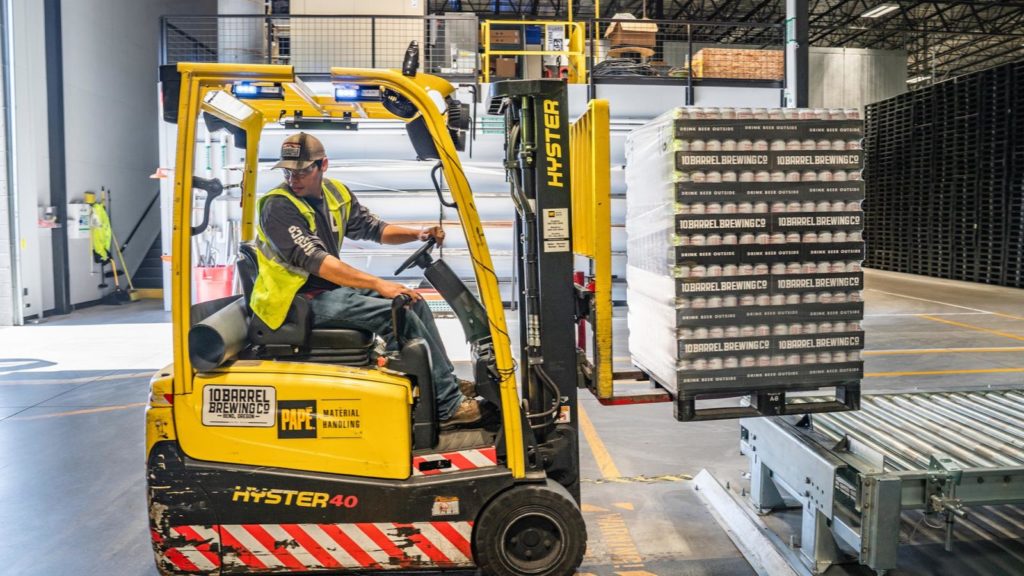A work injury is the last thing anyone expects to happen to them. Big or small, work injuries have the potential to change the course of your career and even your life. Besides the worry of physical recovery, many injured workers find themselves wondering how they will fare financially. Questions are likely to arise such as how long will it take to receive compensation? How much compensation can you receive? How long can you be off work and receive compensation?
For many, it may be helpful to examine an example timeline of the life of an Ohio workers’ compensation claim. It’s important to remember that while all claims will be held to the same rules and standards, no two claims will receive all of the same benefits or follow the exact same timeline.
What should I do if I get injured at work in Ohio?
After any work injury, the very first thing you should do is report it. Reporting an injury and therefore documenting it is key to starting a paper trail to support your claim. Medical evidence is also crucial to claim success, so it’s important to receive an examination from a licensed medical provider. This could be done with your employer’s occupational health facility, your primary care provider, or at the emergency room if warranted. It’s important to note that while you can receive an initial exam from any provider immediately after your work injury, any ongoing treatment must be conducted by a BWC-certified provider.
After reporting, your employer may file a workers’ compensation claim with the Ohio Bureau of Workers’ Compensation on your behalf. Either you, an attorney or a medical provider can also file a First Report of Injury to jumpstart your claim. Some employers may try to discourage you from filing a claim. They may even offer you money to dissuade you. Ohio law says that any injured worker has the right to file a workers’ compensation claim without retaliation or harassment.
It’s wise to receive a case evaluation from an experienced workers’ compensation attorney to ensure you receive the full measure of compensation you are entitled to. If you’ve already delayed taking action after an injury, or your injury has occurred due to wear and tear over time, don’t discount yourself. You have one year from the date of your injury to file a claim. The BWC will then decide whether to allow or deny your claim if the employer is state-funded. However, if your employer is self-insured, the employer will initially decide whether they will certify your claim and pay medical or lost time benefits.
What happens if my workers’ compensation claim is denied?
In all state-funded cases, the Ohio Bureau of Workers’ compensation issues claims allowance or denial by mail. They will make this decision after reviewing medical information submitted by your managed care organization (MCO). If you receive a denial, you only have 14 days to file an appeal. Many injured workers wisely choose to contact an attorney at this point in the process; filing an appeal will result in a hearing with the Industrial Commission of Ohio. In a self-insured case, the employer will allow or deny the claim. If the claim is denied, then it will have to go before an Industrial Commission hearing officer to hear the evidence and make a decision on the allowance of the claim.
A knowledgeable Ohio workers’ compensation attorney can gather medical evidence, file your appeal in a timely fashion, insure a denied self-insured claim is referred to the Industrial Commission, and represent you at your hearing. Even if your claim is approved by the Bureau of Workers Compensation, your employer may file an appeal to this approval for which you will also be required to attend a hearing.
FAQ: Can You Sue Your Employer for Your Work Injury?
What will happen after my workers’ compensation claim is approved?
The BWC categorizes workers’ compensation claims as either lost-time or medical-only claims. Less serious injuries will likely fall into the medical-only category, meaning the injured worker misses seven or fewer days of work due to the injury.
These cases often result in medical bills and ongoing treatment, either immediately after an injury or down the road, all of which need to be paid for. This is why it’s still beneficial to pursue a workers’ compensation claim no matter how small an injury may seem at the time. Oftentimes, injured workers are able to continue working while receiving these benefits.
A lost-time claim requires the injured worker to miss at least eight days of work. If this is the case, the BWC will contact you in order to request wage information. Lost-time claims will result in what’s known as temporary total compensation, which means your injury rendered you completely unable to return to your job for an isolated period of time.
Temporary total disability benefits imply that your inability to perform your job duties is temporary and you return to employment as soon as possible. Injured workers can typically continue receiving these benefits for an extended period of time until they reach maximum medical improvement, are given a job within their work restrictions, or heal completely and return to regular work.
What if my work injury leaves permanent damage?
All too often work injuries prove severe enough to create lifelong problems and permanent damage for injured workers. Depending on the severity of your impairment, you may be eligible for permanent partial or permanent total disability benefits. You must apply for these benefits in order to receive them after which you will undergo a thorough medical examination. A qualified attorney on your side can make sure these benefits are pursued at the right time in your case, and that you receive the maximum dollar amount possible.
If you have been off work for a year or more due to your work injury and subsequent disability, you may be eligible for Social Security Disability. Attorneys at Schaffer & Associates can help you file for this benefit in addition to appealing a denial should you receive one.
When can I settle my workers’ compensation case?
There comes a time in every workers’ compensation case when there may be no benefit to the injured worker to leave the claim open. Perhaps their injury has fully healed, or perhaps they no longer wish to pursue ongoing treatment. Whatever the reason may be, it’s a good idea to consult an Ohio workers’ compensation attorney before settling your claim, as this will, “forever resolve all past, present, or future medical and compensation issues and liabilities in the claim, whether known or unknown”.
Settlement amounts are calculated on a case-by-case basis. A skillful attorney can negotiate your settlement for the highest amount possible, as well as ensure you don’t settle your case before the time is right.
Let Our Attorneys Manage Your Claim for You
Workers’ compensation claims remain open for up to 5 years after either the last date of treatment or the last date compensation is paid out. As long as claims are active, they can go on for decades. It can be challenging and exhausting to manage the ins and outs of a workers’ compensation claim.
At Schaffer & Associates, we have decades of experience representing injured workers. We work hard to maximize the benefits available to every client including medical treatment, financial compensation, alternative work opportunities, and more. Call (419) 350-8277 or send us a message to schedule your free consultation today.


